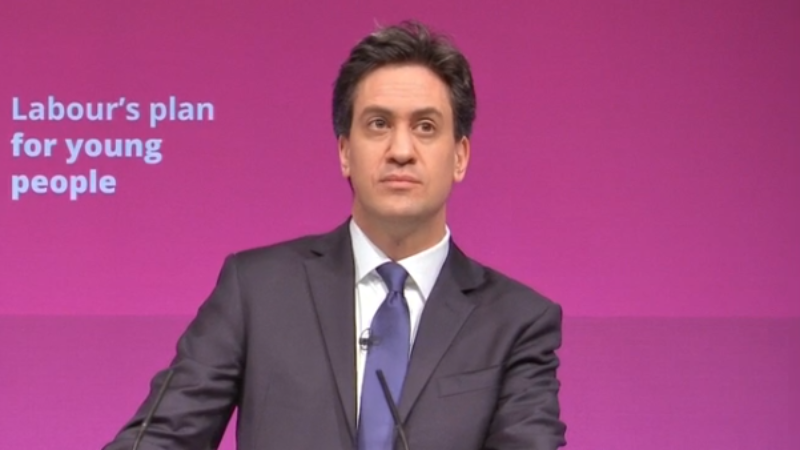
Last week Labour unveiled their election pledge card, which read as follows:
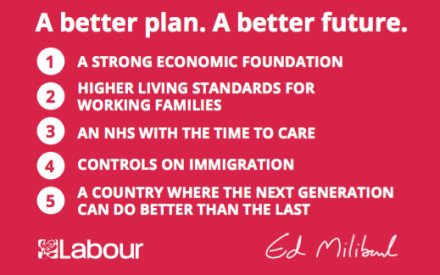
We asked Labourlist readers to rank the pledges in order of how much they liked they liked each pledge on a scale of 1 to 5 (where 1 was the least and 5 the most).
No surprises here: the NHS came out on top with an average score of 3.95. This means most people (41% in total) chose the NHS as their favourite pledge. The second favourite was higher living standards for working families – which includes freezing energy bills and a minimum wage of £8 an hour by 2020 with a score of 3.61. 26% of people chose it as their first option and 30% as their second.
In third place, was Labour’s pledge to build a strong economic foundation (i.e. cutting the deficit every year) – 28% chose it as their third favourite and 32% as their fourth.
Lower down the list is Labour’s young people pledge. The details of this pledge include cutting tuition fees from £9,000 to £6,000 a year and creating apprenticeships. Only 14% of people picked this as their favourite pledge, with the most – 34% – rating it as their fourth.
This could be because when we asked LabourList readers how they’d like higher education funded only 6% said between fees of £5,999-£3,000 a year, and 3% said £8,999-£6,000. Meanwhile 45% opting to choose a return to pre-tuition fees days; funding higher education through taxation and 34% chose graduate tax. So perhaps they don’t see Labour’s tuition fee policy as heading in the right direction.
At the bottom of the list, with the lowest rating of 1.53, is controlling immigration. 76% of people chose this as their least favourite pledge while only 5% chose it as their favourite. This implies that although there’s a small appetite for Labour’s immigration pledge, most people see it as Labour’s least attractive pledge – not surprising given that it has received some criticism.
We then asked how good respondents thought the election pledge card is as a whole.
There’s a significant level of support for it – 55% of people thought it was either very good (17% said this) or quite good (a larger number, 38% opted for this ption). This is a good sign for Labour going into the election, as it indicates there is a significant amount of support – at least among LabourList readers – for the pledge card.
However, not everyone is so satisfied. 24%, not an insubstantial number of people, said that the pledge card was just average. Maybe that’s because they’d like Labour to go further on certain issues or because policy areas they’d like to see on there are missing.
All that said, most people who responded offered support for the pledge cards – only 12% said it was quite poor and 9% said very poor, a combined score of 21%.
Finally, for our rolling question. This week we asked readers what they think is the likeliest outcome for the general election.
A majority of people – 54% in total – said that Labour would be the largest party, while only 13% think Labour will swing a majority – down by 7 points since we last asked this question.
Interestingly, 17% think the Conservatives will be the largest party – that’s up from 13% when we last asked this question. However, more people think the Tories will be the largest party than think Labour will win a majority. This certainly reflects the polls, which show that it’s extremely unlikely that either of the two biggest parties will win enough seats to govern alone.
Only 2% think the Conservatives will win a majority. While 14% still aren’t sure which way it’s going to go. With the polls so close, we’re not surprised these people are hedging their bets.
788 people voted in this week’s survey. Thank you to everyone who took part.



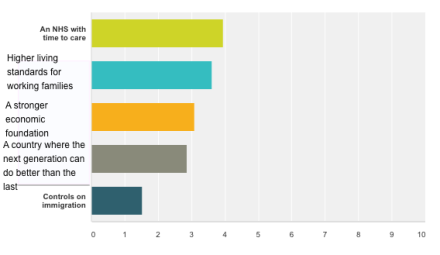
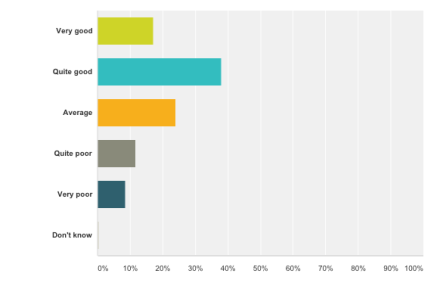
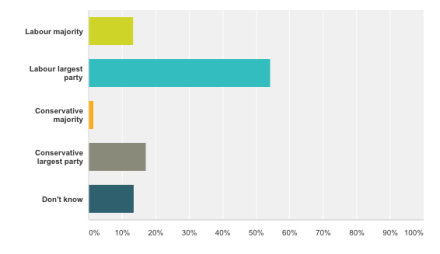

More from LabourList
‘Labour won’t stop the far right by changing leaders — only by proving what the left can deliver’
‘Cutting Welsh university funding would be economic vandalism, not reform’
Sadiq Khan signals he will stand for a fourth term as London Mayor